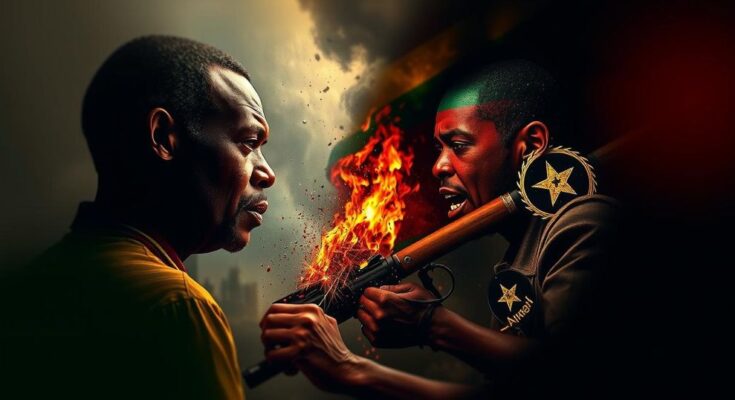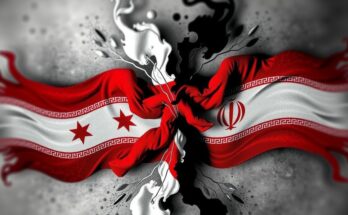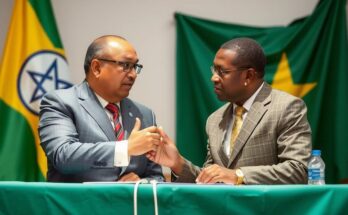Renewed fighting in eastern DRC has alarmed Angola, which was advocating for a ceasefire after a recent lull in violence. Clashes erupted in Kalembe between M23 rebels and Congolese forces, undermining peace initiatives and a prior ceasefire agreement. Angola condemned the resurgence in violence and called for adherence to peace commitments while negotiations continue between DRC and Rwanda amidst a deteriorating humanitarian situation.
The renewed violence in the eastern Democratic Republic of Congo (DRC) has raised alarms for the Angolan government, which was advocating for a sustainable ceasefire following a brief respite in hostilities. On Monday, clashes between the M23 rebel group and Congolese forces erupted in Kalembe, North Kivu Province, right after M23 briefly captured the town before the Congolese army, known as Fardc, successfully recaptured it. Angola, serving as a mediator in the ongoing regional tensions, labeled the new outbreak of violence as a blatant breach of commitments made during a ministerial meeting on July 30, and the ceasefire that was instituted at midnight on August 4. Angola has been facilitating dialogue between the DRC and Rwanda, both of whom accuse each other of enabling destabilizing rebel factions. In a recent meeting, both parties reaffirmed their commitment to seek a peaceful resolution. In an official statement, the Angolan government strongly denounced the violence, emphasizing that it jeopardizes ongoing peace initiatives and urged all conflicting parties to adhere to the ceasefire agreements previously established in September. Reports indicate that fighting around Kalembe involved the Wazalendo self-defense group, which supports the Congolese army, and the M23 rebels. Juvenal Munubo, a former MP, indicated that the NDC Rénové armed group, with assistance from Fardc, has regained dominance over Kalembe, calling for further consolidation of this position. Some officials have expressed concerns over the rebels’ intentions to extend their control into additional provinces, including South Kivu, Tshopo, and Maniema. Despite the apparent breakdown of the truce, the DRC government has not engaged in dialogue with the M23; instead, it is pursuing negotiations with Rwanda. A ceasefire established in August initially enabled some displaced individuals to return home, fostering a glimmer of stability in the area. However, the situation remains precarious given the humanitarian crises and the anticipated displacement of approximately 940,000 individuals in 2024, which has been exacerbated by the ongoing conflict. Measures are now being planned to facilitate a structured verification mechanism for monitoring peace efforts, with the launch expected in Goma no later than November 5, 2024. The escalating violence has led to a humanitarian crisis, further complicating an already dire situation in North Kivu, where civilians are at high risk of humanitarian violations and severe overcrowding.
The Democratic Republic of the Congo has faced ongoing conflicts involving various armed groups, including the M23 rebels, which have prompted neighboring countries to engage in diplomatic efforts to mediate peace. Angola has taken on a significant mediating role, seeking to stabilize the region through comprehensive ceasefire agreements. The DRC, strategically positioned, has access to many resources, but the long-standing instability has often led to significant humanitarian issues, including massive displacement of populations amidst violent confrontations. The involvement of external forces and regional stakeholders like Rwanda complicates the dynamics, prompting ongoing negotiations to resolve the underlying tensions.
In summary, the resurgence of violence in the DRC has generated significant concern from Angola, highlighting the fragility of peace efforts in the region. Despite previous commitments to ceasefire and dialogue, the conflict persists, jeopardizing humanitarian efforts and necessitating a renewed commitment to peace negotiations. The developments indicate that maintaining stability will require diligent coordination among the regional powers and a concerted effort to respect ceasefire agreements to ultimately address the humanitarian crises resulting from these conflicts.
Original Source: www.ghanaweb.com




